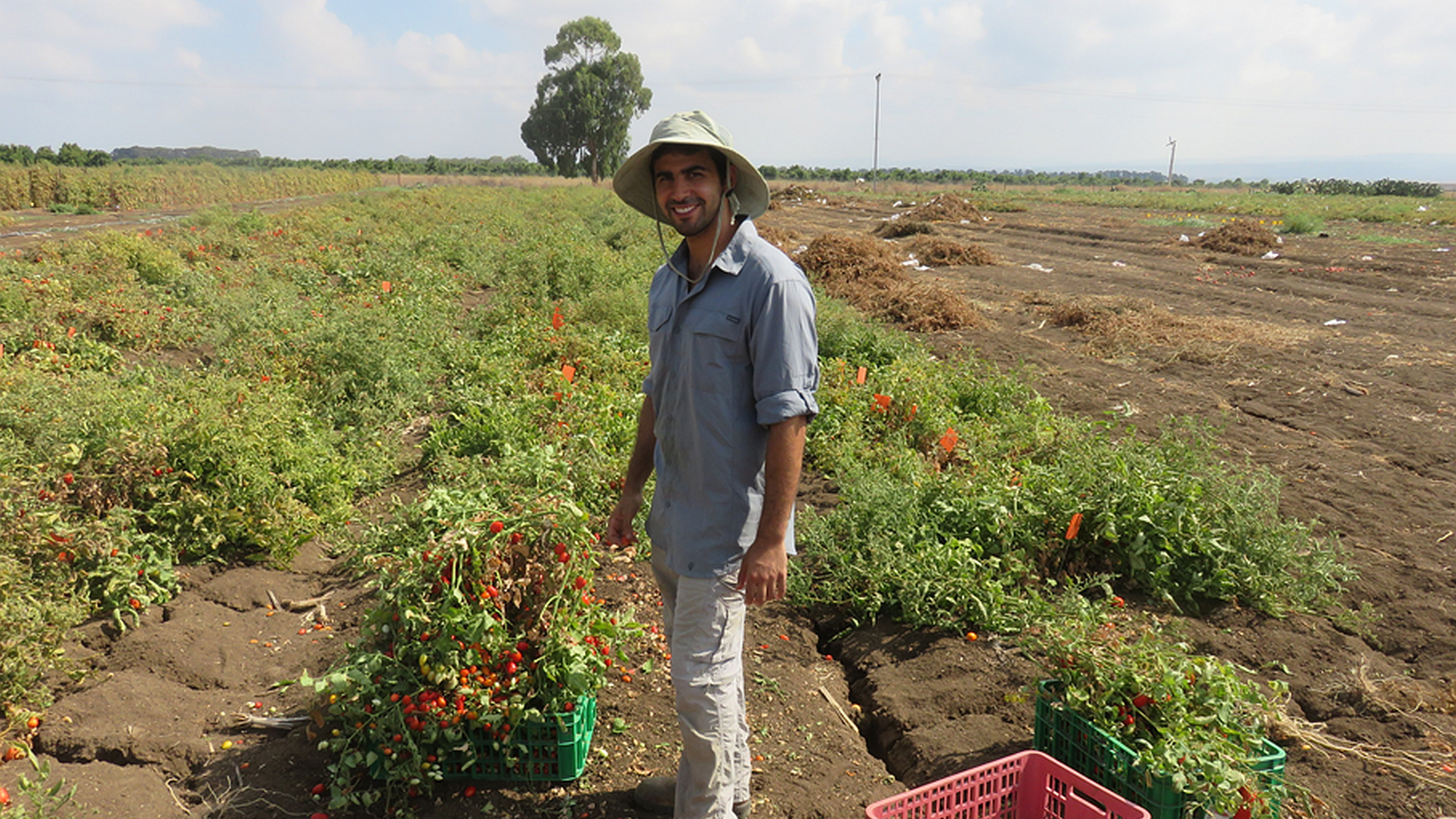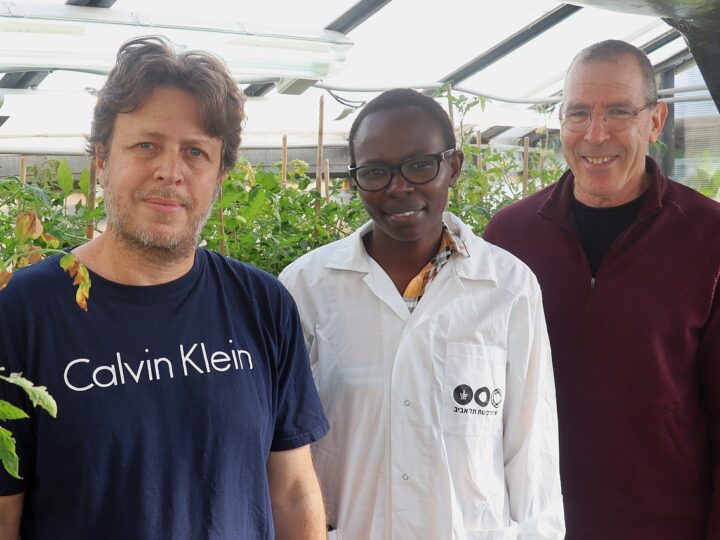Two of Israel’s most famous inventions are the commercialized cherry tomato and drip irrigation, so it makes perfect sense that another tomato/water innovation would arise here.
This time around, scientists developed tomatoes that are not only drought-tolerant, but whose yield actually increases in extreme weather conditions.
In a study recently published in the journal PNAS, researchers from The Hebrew University of Jerusalem crossbred two types of tomato species – a wild tomato from the deserts of western Peru and the cultivated tomato – with the aim of identifying which regions of the genome affect agricultural traits such as yields.
In the course of their research, which included DNA sequencing and data analysis of 1,400 plants, they identified interactions between two regions of the tomato genome that lead to increased yield. The new tomatoes are prolific despite consuming less water.
“Studies of complex traits in plants, such as yield and resistance to drought conditions, have been based on significantly smaller populations of around 200 species,” explains doctoral student Shai Torgeman, who conducted the research with Prof. Dani Zamir.
“This makes it impossible to identify all the interactions (epistasis) between the genes, as well as their influence on important agricultural traits,” Torgeman said.
“In this study, we genetically crossed two different species of tomato, and proved that by use of larger population and a genetic map that includes thousands of markers, it is possible to identify areas in the genome that have interaction between them that increases the yield.”
Now, the new varieties are being cultivated with the aim of commercializing them on the food market.
Fighting for Israel's truth
We cover what makes life in Israel so special — it's people. A non-profit organization, ISRAEL21c's team of journalists are committed to telling stories that humanize Israelis and show their positive impact on our world. You can bring these stories to life by making a donation of $6/month.








